Search Results
Showing results 121 to 140 of 182
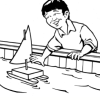
Prepare for a Dock Shop Field Trip
Source Institutions
In this activity, learners explore what makes a boat float and sink. They examine and test various objects to determine why objects float or sink.
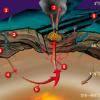
Candy Chemosynthesis
Source Institutions
In this activity, groups of learners work together to create edible models of chemicals involved in autotrophic nutrition.

Black Holes: No Escape
Source Institutions
This fun and simple hands-on astronomy activity lets learners experiment with marbles and weights to discover some basics about gravity and black holes.
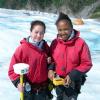
Mini Glacier Meltdown
Source Institutions
This activity (located on page 3 of the PDF under GPS: Glaciers Activity) is a full inquiry investigation about the different causes of glacial melt.
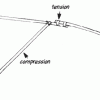
Garden Poles
Source Institutions
In this activity, learners build large-scale structures and cantilevers in a series of "building out" challenges with garden poles and tape.
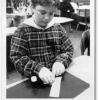
Cylinders and Scale
Source Institutions
In this activity, learners investigate the relative growth of lengths, areas, and volumes as cylinders are scaled up.
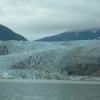
Moving Model Glacier
Source Institutions
In this goopy activity (page 2 of PDF under GPS: Glaciers Activity), learners will model glacial movement with “gak,” a white glue and liquid starch mixture.
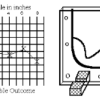
Topographic Investigation: Map an Underwater Surface
Source Institutions
In this activity, learners create a map of a hidden surface using a "sounding stick" -- a technique similar to how underwater maps were once made.

Using Different Models of Earth
Source Institutions
In this activity, learners explore how the shapes, sizes, and distances of land masses appear differently on two different models of Earth: an icosahedron and a flat map.
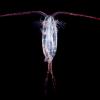
Plankton Feeding
Source Institutions
This activity provides a hands-on experience with a scale model, a relatively high viscosity fluid, and feeding behaviors.
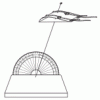
Airfoils
Source Institutions
In this experiment, learners discover how an airfoil creates lift. Learners use simple materials to build an airfoil and test it at different angles to investigate Bernoulli's principle.
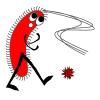
Comparing Sizes of Microorganisms
Source Institutions
In this activity related to microbes, learners create scale models of microorganisms and compare relative sizes of common bacteria, viruses, fungi and protozoa using metric measures: meters, centimete
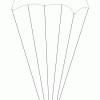
The Parachuting Egg
Source Institutions
In this activity, learners work in groups to design a parachute out of household items that keeps an egg secure when dropped from a certain height.
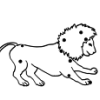
Modeling the Night Sky
Source Institutions
In this two-part activity, learners explore the Earth and Sun's positions in relation to the constellations of the ecliptic with a small model.
Plants: Hanging Tough
Source Institutions
In this hands-on activity, learners will become familiar with the special adaptations of rainforest plants and discover the conditions needed for tropical trees to survive along with what can impinge
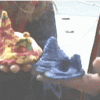
To Topo Two
Source Institutions
In this activity, two groups of learners create two separate landform models out of clay (mountains and valleys).
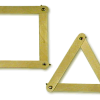
Strong Shapes
Source Institutions
Is a square stronger than a triangle? Use tongue depressors to build simple shapes. Then apply a little weight to them and see what happens!
Leaves: Designing Leaf Arrangements on a Branch
Source Institutions
In this hands-on activity, learners investigate the functional design of leaves on a tree.
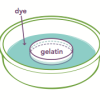
Traveling Nanoparticles Model
Source Institutions
This is an activity (located on page 3 of the PDF under Nanosilver Activity) about diffusion of small molecules across cell membranes.
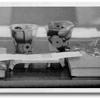
Paper Bridges
Source Institutions
In this activity, learners build bridges using paper and explore how much weight each bridge design can support.
